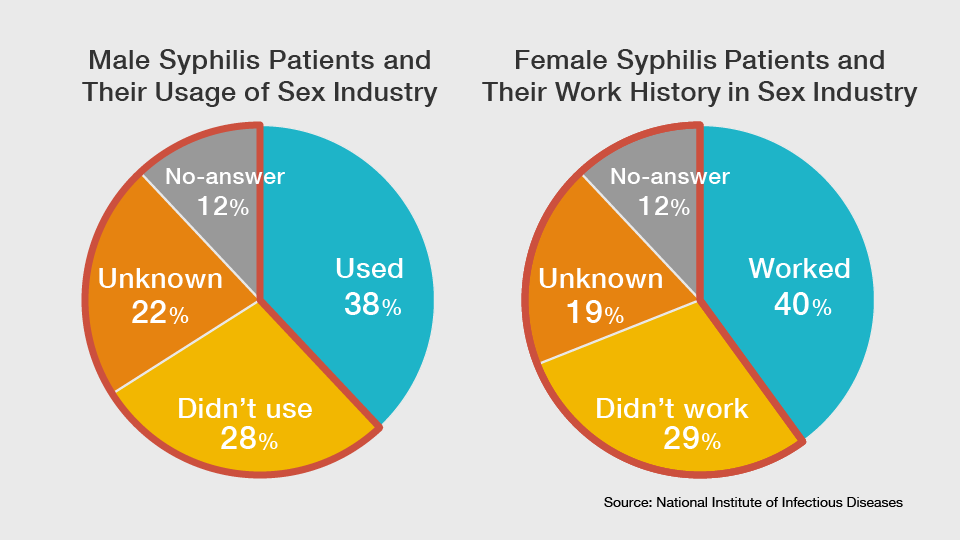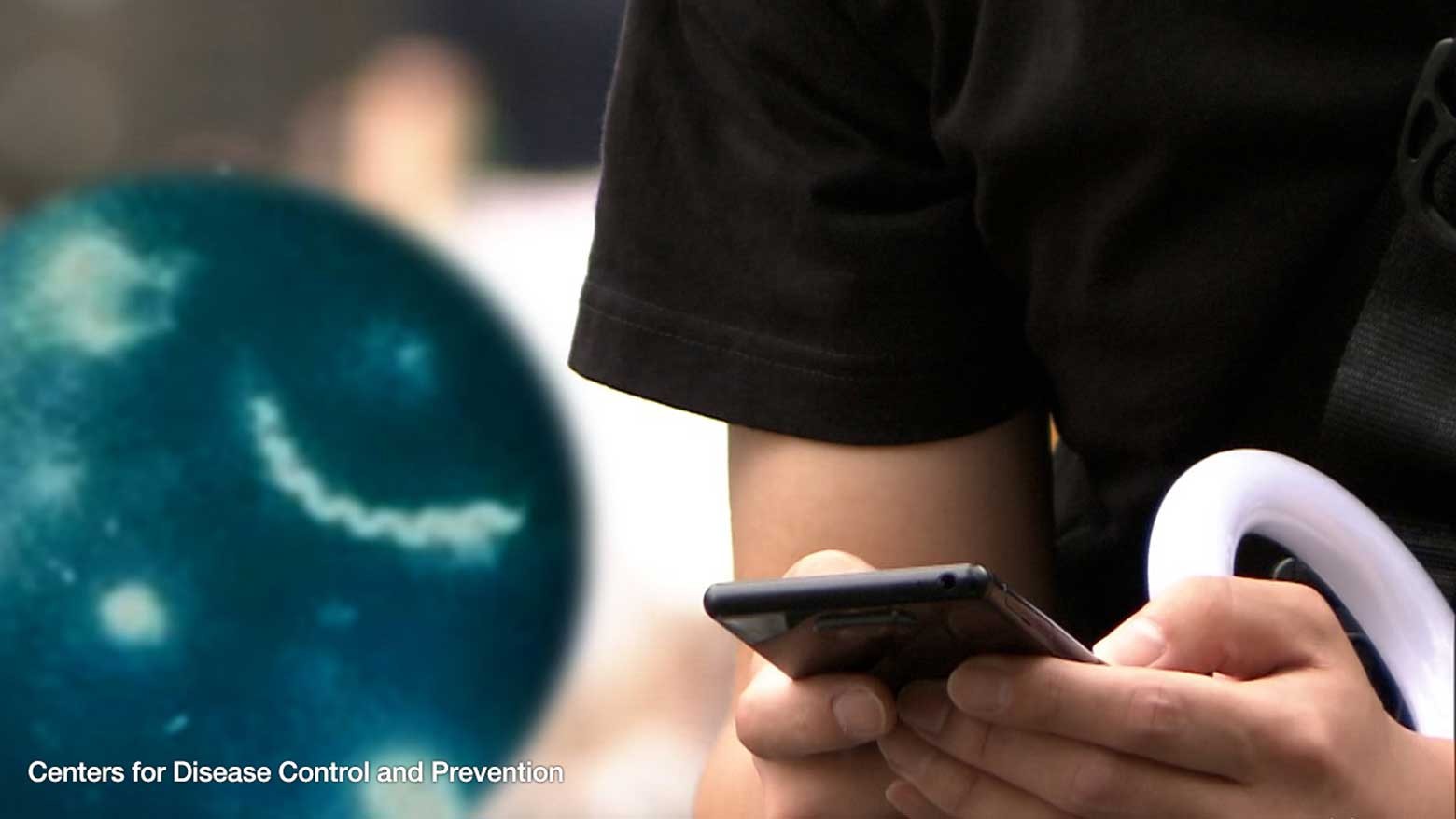Many syphilis cases are linked to the sex industry, where some establishments and workers offer services without condoms.
A worker in her 20s told NHK she tested positive for syphilis during a routine STD test in May last year. She believes she contracted it from a client.
"I understood the risk, but a part of me thought, 'I'll probably be fine.' When it actually happened, though, it was devastating," she says.
Pressured into unsafe sex
The woman says a drop in business during the coronavirus pandemic means sex workers are pressured into unsafe practices: "The number of customers began to change depending on what we were willing to do for a reasonable price. I'm afraid of catching an STD, but I have to put up with that because we're supposed to sell pleasure.'"
The woman was unable to work after contracting syphilis. She was told not to tell her clients. But she contacted some of them anyway, and two confirmed they had also tested positive.
"I think that to protect their profits, they didn't want me to tell people and make a big deal out of it. I feel really sorry for the customers I infected."
She says she experienced swollen lymph nodes and some pain during intercourse, but her symptoms subsided after taking medication.
Syphilis can cause rashes, lesions, or ulcers. In some cases, they heal quickly. Other carriers do not experience any noticeable symptoms. However, if the disease is left untreated for years, it can cause serious symptoms affecting the brain and heart. It can lead to miscarriages, stillbirths, or other detrimental effects on the fetus if contracted during pregnancy.

The impact of COVID
Sasaki Chiwawa, a writer who covers Japanese youth culture and sex work, says recruiters tell young women that they will earn more for unprotected sex.
Financial pressures mean sex workers "will sometimes hide the fact that they have contracted syphilis because they cannot afford to stop working for the multiple months it takes to ensure a full recovery," she says.
"Other infected workers have turned to sex work outside of establishments, or sugar dating," she adds. "The men purchasing these services can also have questionable morals, and there have been cases of men spreading the disease to women. It is crucial that everyone involved gets tested."

Report tracks infection sources
The National Institute of Infectious Diseases estimates that about 40 percent of syphilis cases are either men who have bought sexual services, or women from the sex industry.

STD expert Dr. Furubayashi Keiichi is working to identify the reasons behind the spike in cases. "We think there are people acting as 'spreaders,' and they are the driving force behind the large number of cases," he says.
Another specialist, Dr. Onoe Yasuhiko, explains that "since this is a subject with privacy considerations, it is difficult to conduct epidemiological surveys. However, from our first-hand experiences treating patients at clinics, we believe there may be a connection to dating apps."
Dr. Shigemura Katsumi, Associate Professor at Kobe University says: "With the spread of social media, men and women are meeting each other in new ways. It seems the practice of having numerous sexual partners is becoming widespread."
"Not many people are well-informed about the disease," he adds. "There may be cases when patients infect others before they are completely recovered."
The role of dating apps
One 25-year-old man tells NHK about his use of dating apps: "Because of the coronavirus, I didn't have many opportunities to meet other people. Out of loneliness, I started using apps."
"Since I was meeting people I had no connection to, I ended up having a lot of one-night stands," he says.
He was diagnosed with an STD but has no idea when he contracted it. Even so, he says he did not change his behavior.
"I thought it was unfortunate that I caught an STD, but that didn't make me stop using dating apps or having one-night stands."
Education key to prevention
Kawana Kei, a chief professor at Nihon University School of Medicine, is an expert on syphilis and other STDs. He points to education and prevention methods to stop the spread.

"Sex education classes at schools in Japan do not usually cover topics such as STDs or syphilis, so in order to raise awareness we need more places where young people can get informed, including at home," says Kawana.
He also encourages testing, noting that there are healthcare centers in Tokyo and other regions that offer free, anonymous services.




